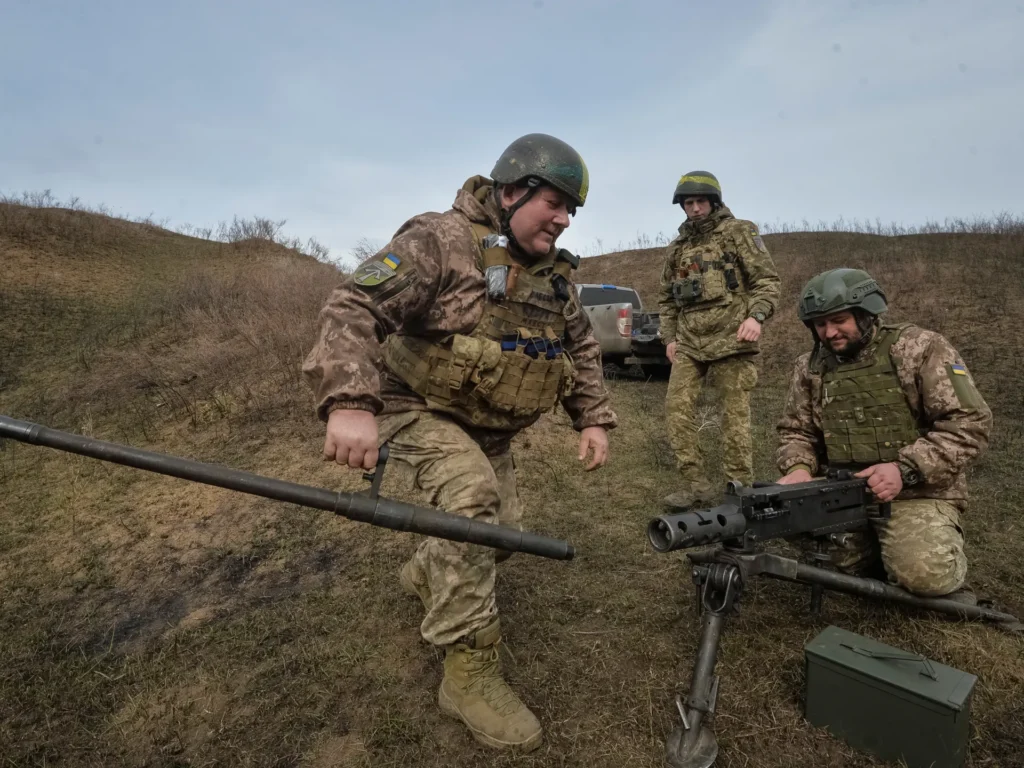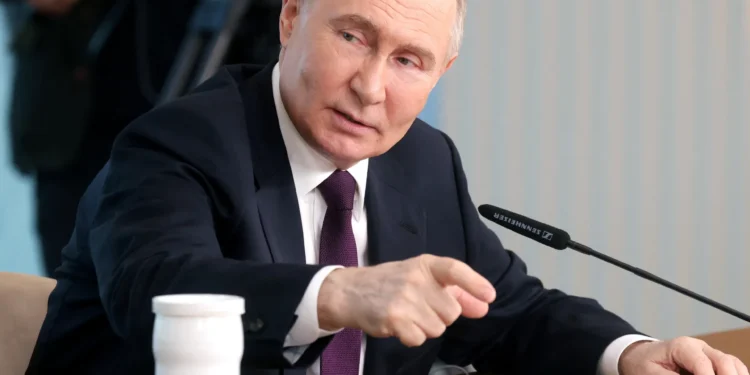Russian President Vladimir Putin has issued a stark warning that any Western troops deployed to Ukraine—during or after hostilities—would be considered legitimate targets by Moscow. His remarks reshape the contours of European peacekeeping and highlight the deep gulf between Russia and Ukraine’s allies.

Putin Declares Western Troops in Ukraine as “Legitimate Targets”
On September 5, 2025, Russian President Vladimir Putin delivered a forceful declaration that any Western military presence in Ukraine—including peacekeeping forces—would be regarded by Moscow as “legitimate targets”. This pronouncement comes amid mounting tensions as Ukraine’s allies consider sending a multinational reassurance force to secure a future peace deal.
At the Eastern Economic Forum in Vladivostok, Putin aimed his remarks at allies of Ukraine, particularly after French President Emmanuel Macron revealed that 26 countries have pledged to support Ukraine’s postwar security, possibly through land, sea, and air deployments. Putin contended that even if these troops are purportedly meant for peacekeeping, their presence during active conflict would be provocative and warrant a defensive response.
Putin’s Justification and Preconditions
Putin underscored that until a peace agreement is signed, foreign troops entering Ukraine would be subject to attack. He added that even in a post-conflict situation, there would be no justification for such deployments—insisting that Russia would uphold any treaty without the need for Western boots on Ukrainian soil.
He emphasized that security guarantees must account for both Russia and Ukraine. However, he lamented that no meaningful dialogue has taken place with Western allies on the matter.
Implications for Peace Efforts
Putin’s remarks pose a direct challenge to the “Coalition of the Willing,” a group of Western nations led by France and the UK proposing a post-peacekeeping deployment in Ukraine once a ceasefire or peace accord is reached. While France and Britain have signaled openness to such deployments, the U.S. has ruled out ground troop involvement, offering instead support via air power and intelligence.
These developments significantly complicate the path toward lasting peace. Ukraine has long sought robust Western guarantees to deter future aggression, but Putin’s statement places direct opposition at the center of any such effort.
Moscow’s Diplomatic Gesture—But Is It Genuine?
In the same forum, Putin extended an invitation to Ukrainian President Volodymyr Zelenskiy for direct talks in Moscow, promising full security and working conditions. Zelenskiy, however, responded skeptically: “We don’t feel that Putin is ready to end this war… no one trusts his words”.
The contradictory gesture—offering talks while issuing threats—underscores the profound mistrust between both sides, and raises doubts about the sincerity of Russia’s diplomatic overtures.
Putin’s hardline stance has already sent shockwaves through Europe. It threatens to derail efforts by Western nations to deliver meaningful security assurances to Ukraine. A peacekeeping presence without Moscow’s consent could trigger escalation, reversing the fragile steps toward a negotiated resolution.
The statement also echoes a broader Russian narrative: NATO expansion in Ukraine is perceived as a direct threat and a prime cause of the war.
Putin’s declaration on September 5, 2025, that Western troops in Ukraine would be “legitimate targets” dramatically intensifies the geopolitical stakes. It throws into question the feasibility of post-conflict security arrangements endorsed by Ukraine’s allies and underscores the enduring mistrust driving the Russia–Ukraine conflict. As the world watches, the road to peace appears more fraught than ever.
READ ALSO…..NIRF Rankings 2025: IIT Patna Shines as Only Bihar Institute in Overall List















 Categories
Categories









